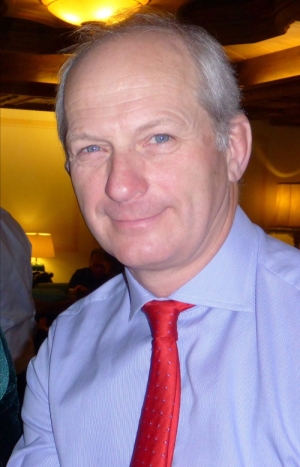


(Posted on 04/09/23)
After years of keeping a vital navigation service operating on the same income, Middle East Navigation Service (MENAS) has been forced to review its funding, to ensure it can continue to help keep seafarers safe and protect the marine environment in the Middle East Gulf.
MENAS has been providing Aids to Navigation (AtoN) in the Middle East Gulf – one of the busiest trade lanes in the world – since 1951, supplying seafarers with essential information regarding the location, route, and configuration of obstacles and hazards.
MENAS covers the cost of operating and maintaining such AtoN, which include buoys, lighthouses and racons, through the collection of Navigational Light Dues, or Nav Dues, as they are more commonly known. Paid by shipowners relative to their net tonnage on their vessels’ first port of entry into the Gulf, the dues have remained at the same level since 2006.
However, the cost of providing MENAS Nav Aids has increased, particularly in the last two years, compounded by the increase of the input costs (material, energy, salaries, etc.) as well as the need to replace some major equipment such as DGPS transmitters.
MENAS has therefore had to make the difficult decision to change its charges. The new tariff includes an increase in the rate and the widening of the group of ships which will be asked to pay for the service.
“We have worked very hard to keep the Nav Dues charges at the same level since 2006 but due to the rising costs involved, we feel we have no other option than to increase them, because we want to provide the same services at the same quality,” says Peter Stanley, CEO of MENAS’ parent organisation, International Foundation for Aids to Navigation (IFAN).
“Without change, the income we receive would not be enough to fund the service sufficiently, compromising safety and the future of MENAS AtoN. I appreciate the extra cost may not be welcomed by shipowners, but we have to implement the tariff charge to ensure the safe navigation of vessels in the Gulf and the protection of the region’s marine environment.”
He adds: “We know that reputable shipowners will be committed to good safety standards, also bearing in mind SOLAS Chapter V obligations, and trust they will understand the reasons for these changes.”
Though MENAS undertakes contract work for third parties as a way of helping to reduce Nav Dues to shipowners, all services provided by MENAS are paid for by these dues.
The new tariff will be implemented on 1st October 2023 and is reviewed annually.
In recent years, MENAS has witnessed a trend of using smaller vessels, which currently do not pay dues, and some of these frequent users have quite significant fleets. MENAS believes it is only fair that these should now contribute towards the services that it provides, and it will be asking for payment from all owners/charterers of vessels above or equal to 8,000 net tonnes in the future when they, make their first port call in the Middle East Gulf.
AtoB@C Shipping, a subsidiary of ESL Shipping, has announced the successful delivery of Fleximar, the... Read more
Western Bulk, together with reputable Norwegian partners A/S J. Ludwig Mowinckels Rederi, Premium Maritime... Read more
Pacific Basin Shipping Limited, one of the world’s leading dry bulk shipping companies, has announced... Read more
Columbia Group anticipates a period of strong expansion as an increasing number of international shipowners... Read more
Norse?Ship Management has expanded its use of Smart Ship Hub’s high frequency sensor data and... Read more
As the maritime industry gears up to welcome the IMO’s STCW bullying and harassment training amendments... Read more
NORDEN has acquired the cargo activities of Taylor Maritime in Southern Africa (previously operated... Read more
Philippos Ioulianou, Managing Director of EmissionLink, has warned the IMO’s decision to delay... Read more
VIKAND has highlighted the need for cultural change in the maritime sector as reports of bullying, harassment... Read more
The maritime industry is experiencing a period of significant transformation, driven by rapidly evolving... Read more